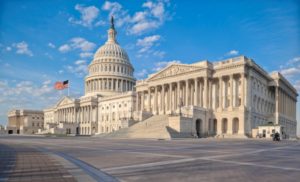Regulating the Sale and Use of Hidden Cameras
Regulators should restrict the sale and access of covert cameras but not ban them outright.
Can Ethical Certification Prevent Food Fraud?
Food certification organizations, if backed with criminal sanctions, can help deter food fraud.
Regulatory Comments and the Major Questions Doctrine
Courts should not rely on the number of public comments to assess the legality of regulations.
Virtual Hearings in Agency Adjudication
ACUS assesses the changing landscape of how agencies use new technologies to hold hearings.
Increasing Early, Transparent Consideration of Regulatory Alternatives
Agencies can do more to disclose input on regulatory alternatives during notice-and-comment processes.
Pursuing Periodic Review of Agency Regulation
Periodic reviews of regulations can promote learning and improve policy.
The Need to Change Jurisdiction Over the U.S. Electric Grid
When state and local voters prohibit clean energy transmission lines, they halt progress on climate change mitigation.
Improving the Management of Public Comments in a Digital Age
ACUS recommends best practices for how agencies manage mass, computer-generated, and falsely attributed public comments.
Too Many Eyes on the Road
Existing federal privacy laws may not cover data collected from autonomous vehicles.
A Fili-Busted Balance of Power
The filibuster has caused Congress to give up its constitutional power to oversee the administrative state.
Climate Progress in Glasgow Depends on Domestic Politics
Despite global summits and accords, the solution to climate change rests with individual countries.
Crisis Standards of Care May Discriminate Against Patients With Disabilities
COVID-19 has triggered discussions around the discriminatory impacts of crisis standards of care in medicine.












